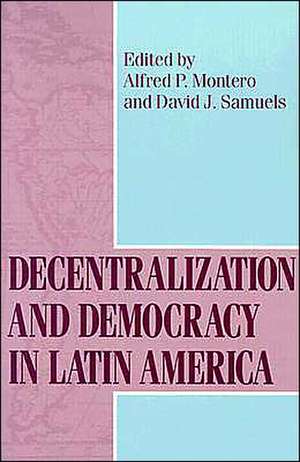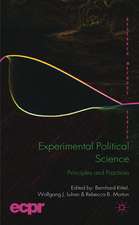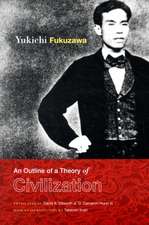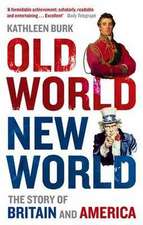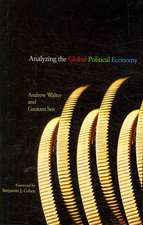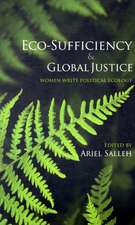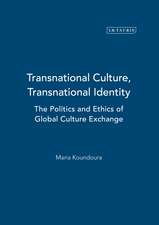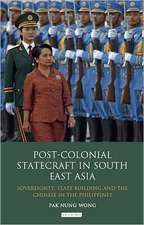Decentralization and Democracy in Latin America: Kellogg Institute Series on Democracy and Development
Autor Alfred P. Monteroen Limba Engleză Paperback – 14 mar 2004
| Toate formatele și edițiile | Preț | Express |
|---|---|---|
| Paperback (1) | 232.16 lei 6-8 săpt. | |
| MR – University of Notre Dame Press – 14 mar 2004 | 232.16 lei 6-8 săpt. | |
| Hardback (1) | 345.89 lei 6-8 săpt. | |
| MR – University of Notre Dame Press – 14 mar 2004 | 345.89 lei 6-8 săpt. |
Din seria Kellogg Institute Series on Democracy and Development
-
 Preț: 222.01 lei
Preț: 222.01 lei - 19%
 Preț: 450.29 lei
Preț: 450.29 lei -
 Preț: 365.21 lei
Preț: 365.21 lei -
 Preț: 277.23 lei
Preț: 277.23 lei -
 Preț: 277.53 lei
Preț: 277.53 lei -
 Preț: 173.49 lei
Preț: 173.49 lei -
 Preț: 284.82 lei
Preț: 284.82 lei -
 Preț: 299.65 lei
Preț: 299.65 lei -
 Preț: 243.30 lei
Preț: 243.30 lei -
 Preț: 279.23 lei
Preț: 279.23 lei - 27%
 Preț: 701.59 lei
Preț: 701.59 lei -
 Preț: 162.65 lei
Preț: 162.65 lei -
 Preț: 221.38 lei
Preț: 221.38 lei -
 Preț: 216.16 lei
Preț: 216.16 lei -
 Preț: 180.06 lei
Preț: 180.06 lei -
 Preț: 157.58 lei
Preț: 157.58 lei - 15%
 Preț: 456.46 lei
Preț: 456.46 lei - 23%
 Preț: 591.49 lei
Preț: 591.49 lei -
 Preț: 276.55 lei
Preț: 276.55 lei - 23%
 Preț: 588.22 lei
Preț: 588.22 lei -
 Preț: 199.49 lei
Preț: 199.49 lei - 27%
 Preț: 699.35 lei
Preț: 699.35 lei -
 Preț: 280.96 lei
Preț: 280.96 lei -
 Preț: 367.12 lei
Preț: 367.12 lei - 27%
 Preț: 697.53 lei
Preț: 697.53 lei -
 Preț: 205.64 lei
Preț: 205.64 lei -
 Preț: 464.59 lei
Preț: 464.59 lei -
 Preț: 443.72 lei
Preț: 443.72 lei -
 Preț: 243.30 lei
Preț: 243.30 lei -
 Preț: 254.37 lei
Preț: 254.37 lei -
 Preț: 324.83 lei
Preț: 324.83 lei -
 Preț: 354.99 lei
Preț: 354.99 lei -
 Preț: 200.26 lei
Preț: 200.26 lei -
 Preț: 325.43 lei
Preț: 325.43 lei -
 Preț: 177.57 lei
Preț: 177.57 lei -
 Preț: 173.91 lei
Preț: 173.91 lei -
 Preț: 275.43 lei
Preț: 275.43 lei -
 Preț: 300.58 lei
Preț: 300.58 lei -
 Preț: 252.64 lei
Preț: 252.64 lei -
 Preț: 275.40 lei
Preț: 275.40 lei -
 Preț: 244.94 lei
Preț: 244.94 lei -
 Preț: 298.67 lei
Preț: 298.67 lei -
 Preț: 156.23 lei
Preț: 156.23 lei
Preț: 232.16 lei
Nou
Puncte Express: 348
Preț estimativ în valută:
44.42€ • 46.38$ • 36.77£
44.42€ • 46.38$ • 36.77£
Carte tipărită la comandă
Livrare economică 04-18 aprilie
Preluare comenzi: 021 569.72.76
Specificații
ISBN-13: 9780268025595
ISBN-10: 0268025592
Pagini: 320
Dimensiuni: 152 x 228 x 20 mm
Greutate: 0.46 kg
Ediția:1
Editura: MR – University of Notre Dame Press
Seria Kellogg Institute Series on Democracy and Development
ISBN-10: 0268025592
Pagini: 320
Dimensiuni: 152 x 228 x 20 mm
Greutate: 0.46 kg
Ediția:1
Editura: MR – University of Notre Dame Press
Seria Kellogg Institute Series on Democracy and Development
Recenzii
"Montero, Samuels, and the contributors are to be congratulated for producing a volume that is coherent, integrated, and timely. Graduate students and professionals will not only find it useful empirically and analytically but also will consider it a mine for endless propositions and hypotheses for testing and investigating. Overall, Decentralization and Democracy in Latin America is a valuable and solid volume."
"This edited volume brings together some of the finest works on decentralization in Latin America produced in the U.S. in recent years. The book is sound, both theoretically and empirically, and the different chapters nicely complement each other . . . This book is likely to become part of the reading lists of Latin American politics seminars."—The Americas, vol. 62 no. 1, July 2005
Notă biografică
Alfred P. Montero is associate professor of political science at Carleton College.
David J. Samuels is associate professor of political science at the University of Minnesota.
Contributors: Alfred P. Montero, David J. Samuels, Kathleen M. O'Neill, Gary Bland, Kent Eaton, Michael Penfold-Becerra, Caroline C. Beer, Erik Wibbels, Stephan Haggard, and Steven B. Webb.
David J. Samuels is associate professor of political science at the University of Minnesota.
Contributors: Alfred P. Montero, David J. Samuels, Kathleen M. O'Neill, Gary Bland, Kent Eaton, Michael Penfold-Becerra, Caroline C. Beer, Erik Wibbels, Stephan Haggard, and Steven B. Webb.
